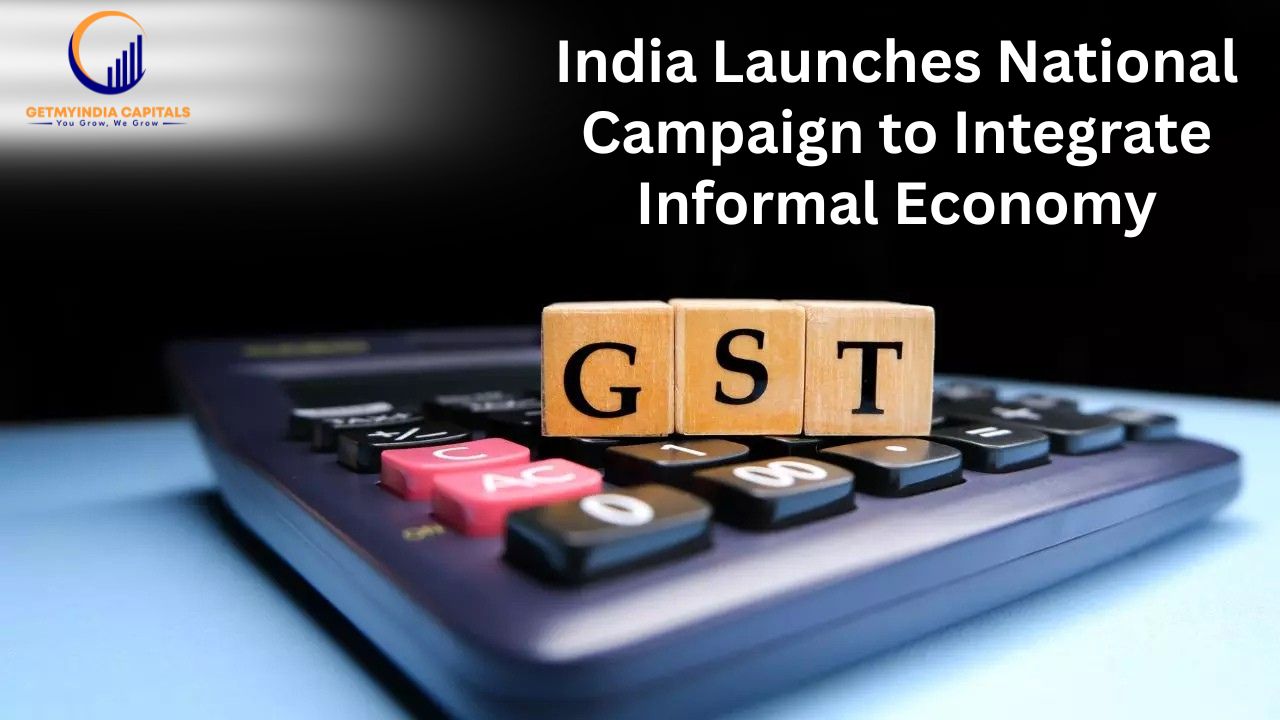India’s GST Outreach Drive: Paving the Way for a More Formalized Economy
In a significant move aimed at deepening the tax net and accelerating the formalization of the Indian economy, the Government of India has launched a nationwide campaign to expand Goods and Services Tax (GST) registrations. This ambitious outreach initiative, led by the Central Board of Indirect Taxes and Customs (CBIC), is specifically targeting cash-intensive sectors, high-density commercial hubs, and informal business segments such as food vendors, small retailers, and local service providers that continue to operate outside the formal GST framework.
A Two-Fold Mission: Formalization and Transparency
According to senior government officials, the drive serves a dual purpose: to bring unregistered businesses under the GST regime and to curtail the prevalence of cash-based, unaccounted transactions in the economy. “It is a persistent structural issue in India’s economy, and continuous efforts are needed to correct this,” an official source explained. By reducing the reliance on cash transactions, the government aims to improve tax compliance, enhance economic transparency, and foster a level playing field for all businesses.
Outreach Over Enforcement
Crucially, the government has clarified that the initiative is not meant to be intrusive. Instead, it prioritizes trust-building, education, and voluntary compliance. CBIC field officers have been instructed to engage in on-ground awareness campaigns, conduct door-to-door outreach, and utilize data analytics to identify unregistered enterprises with tax potential.
“This initiative focuses on outreach, not enforcement,” a senior official emphasized, adding that “more registrations mean more oversight, but also better compliance, smoother trade, and potentially lower rates for all in the future.” The strategy reflects a shift toward a more cooperative approach to taxation—one that encourages participation rather than penalization.
Record-Breaking GST Collections in April 2025
The timing of this campaign is particularly strategic, following India’s highest-ever monthly GST collections in April 2025. Revenues reached ₹2.36 lakh crore, marking a year-on-year growth of 12.6%. A major factor behind this surge was the inclusion of over 2.5 million new GST registrations in FY25, pushing the total number of registered taxpayers to an impressive 15 million.
States like Maharashtra, Uttar Pradesh, Gujarat, Karnataka, and Tamil Nadu are leading this transformation. Maharashtra continues to contribute the most in absolute GST revenue due to its strong industrial and service sectors. At the same time, Uttar Pradesh now holds the highest number of registered entities, having surpassed the 1 million mark. These developments point to a nationwide momentum toward formalization that is gaining both speed and scale.
Structural Gains in a Changing Economic Landscape
India’s informal sector has historically been a massive, yet largely untaxed, segment of the economy. Estimates suggest it accounts for 45–50% of employment and a significant portion of GDP. However, this sector’s limited integration into the formal financial and regulatory ecosystem has often hindered broader economic development.
Experts believe that the government’s outreach campaign could drive much-needed structural reforms. “Formalization of the informal economy is critical not just for tax collection, but for improving productivity, access to credit, and social security for workers,” an official noted. The GST framework, with its built-in digital trail, enables a transparent record of transactions, which can significantly enhance policymaking, compliance monitoring, and long-term planning.
A Broader Tax Base, A Lower Tax Burden
The logic underpinning this policy drive is straightforward: a wider tax base distributes the tax burden more equitably, potentially allowing for lower GST rates in the future. This has been a long-standing demand from both businesses and tax experts who argue that high rates discourage compliance.
By onboarding small vendors, service providers, and local businesses into the GST network, the government hopes to democratize tax contribution and improve revenue predictability. This could also facilitate the rationalization of GST slabs—a critical reform that many believe would further simplify the indirect tax system and boost compliance.
A Boost to India’s Investment Climate
The formalization effort is not just about taxation—it is also integral to India’s broader economic ambitions. As the country seeks to attract higher levels of foreign direct investment (FDI) and improve its global business rankings, a well-regulated and transparent economic environment becomes indispensable.
By bringing more businesses into the fold, the government is also enhancing India’s ease of doing business, improving governance, and laying the foundation for more inclusive and sustainable growth. “GST’s digital trail can revolutionize policymaking and compliance monitoring,” said one official, highlighting the long-term strategic value of the campaign.
The Road Ahead
While the Ministry of Finance has yet to issue an official statement in response to media queries, the direction is unequivocal: India is accelerating its transition toward a formal economy, with GST registration as a central instrument in that journey.
This new normal means that businesses, regardless of size, can no longer remain outside the regulatory net. The days of informal operations are gradually being phased out in favor of a system that prioritizes accountability, transparency, and national economic strength.
In the long run, the benefits of this transformation are expected to be far-reaching, including improved government revenues, better infrastructure, enhanced access to credit for small businesses, and a more robust foundation for economic policy. If executed effectively, this GST outreach campaign could mark a turning point in India’s journey toward a more inclusive and sustainable economy.
GetMyIndia.com RaysVeda.com GetMyStartup.com LawCanal.com ABHAYRAY.COM ZinCob.com

